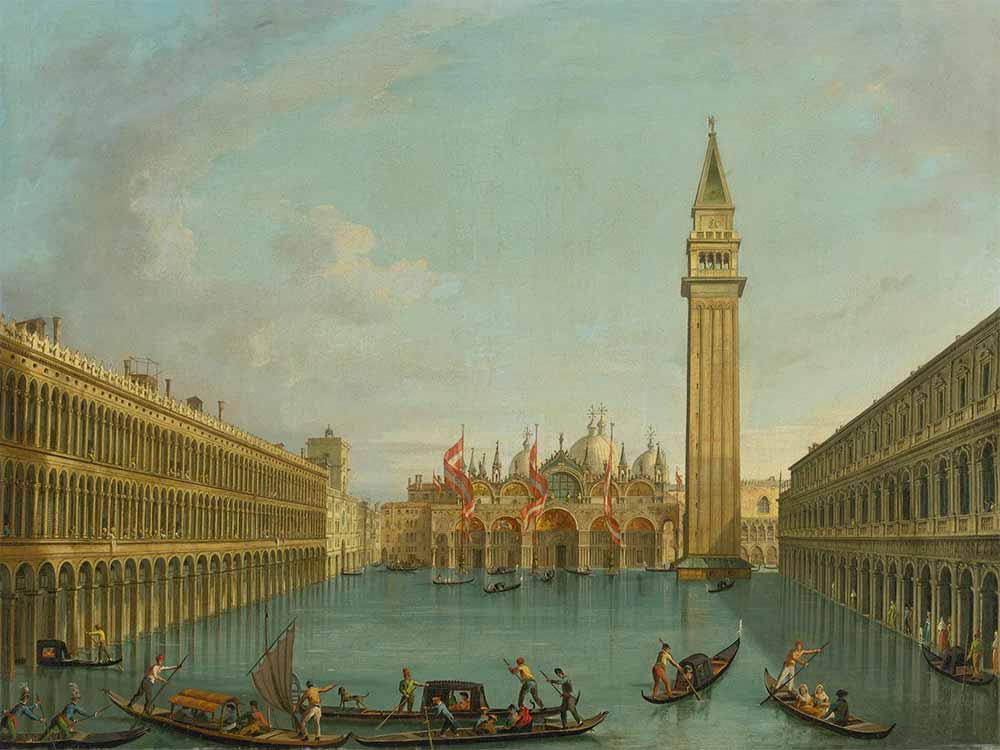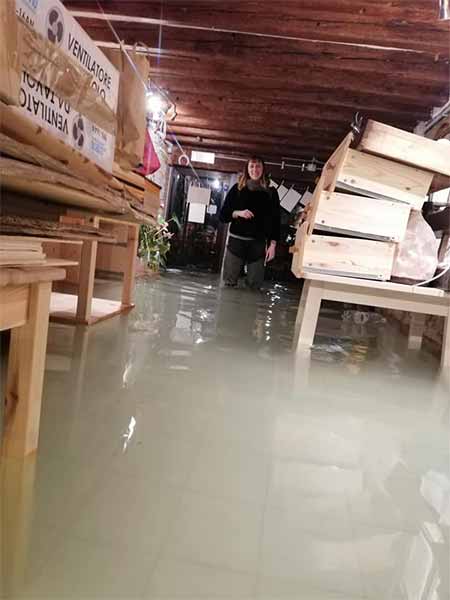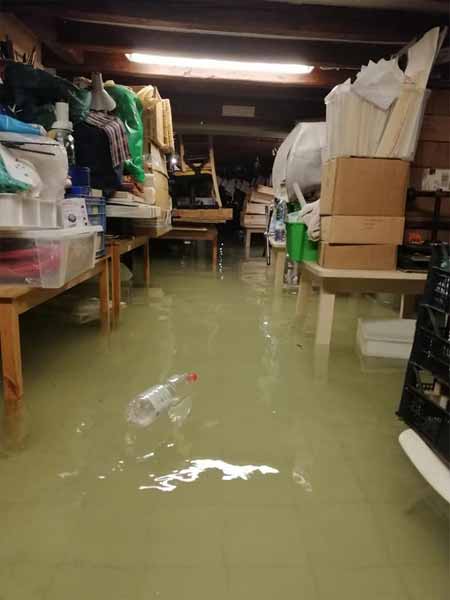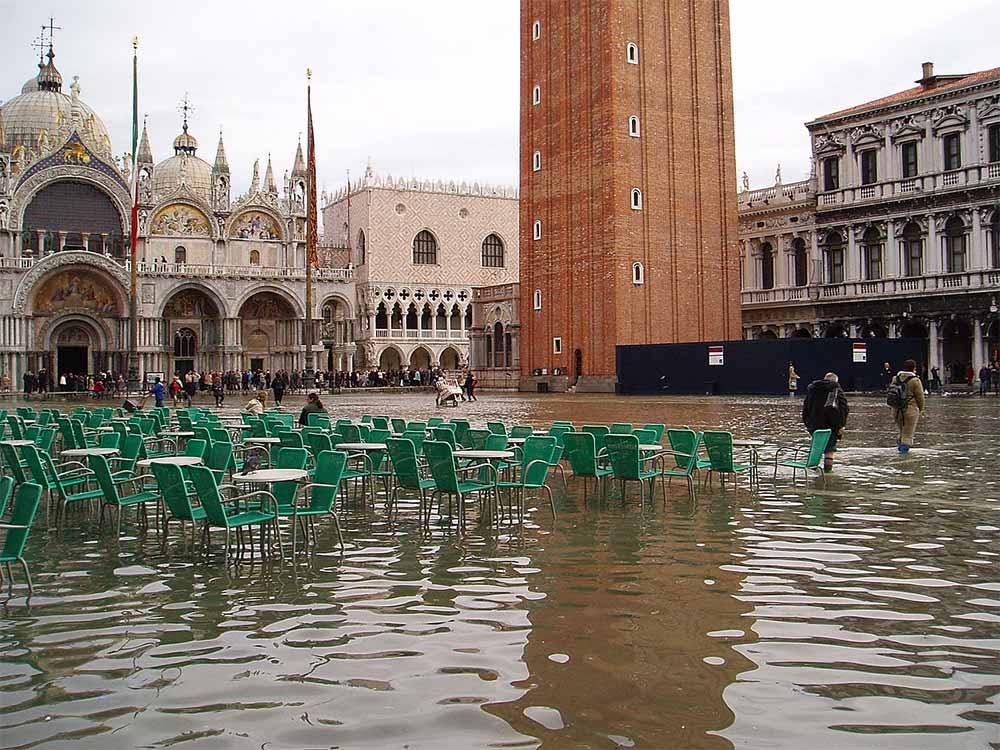Month: January 2020
High water in Venice: we try to do some clarity
A small introduction: I’m writing this article not to refresh notions studied during geography classes at the primary school, but just to give truthful information about the situation here in Venice after the high waters.
After the disastrous tides of last November and the less traumatic but nonetheless problematic ones of December, articles and news have circulated that have created a climate of terror among those who wanted to come and see the most beautiful city in the world in person, leading to the mass cancellation of a considerable portion of future visitors.
If you ask a Venetian the question: “What about the water?” the answer you will most likely get will be: “Six hours grows, six hours falls.”
The relationship of the Venetians with the lagoon and its tides is something that has lasted for hundreds of years, and it is as natural as breathing in a living body.

Piazza San Marco allagata, Vincernzo Chilone, 1825
Not so simple (of course) is for the tourist to understand this simple truth: no matter how the tide may rise, no matter how much damage and disasters, inconvenience and loss it may bring, it will ALWAYS decrease. In the worst case you can have two high tides with a low tide in the middle not very low, which can lead to have high water for a whole day, but in exceptional cases: after its time the water will naturally flow back to the sea.
Even in the case of the exceptional tide of November, 13th (187 cm above sea level), when the water reached its maximum, (I must say that it was a really considerable maximum, in the shop I had 60 cm of water inside and a small fish swimming) the tide began to flow out quite quickly, so that in a few hours it had completely disappeared from the streets.
In general anyway the tide is a good thing, it circulates water inside the lagoon and brings life, like blood inside the veins. It may happen that at certain times there is the possibility of water rising, and even a lot as we have seen, but it will always be a TEMPORARY situation.
High tides are a seasonal phenomenon, often occurring in November and December: don’t be afraid of the tide, like the Venetians who have always lived with it- the water won’t hurt you or drown you (don’t fall into the canal though!). All you need is a pair of rubber boots and you can almost always get around the city without too much trouble and enjoy an unusual view.
In case you are in Venice during an exceptional tide you will find a sheltered place or stay in your hotel room for a few hours, in the heat and shelter you will not suffer great privations, with running water and electricity you will not even notice what is happening outside.
As for the boots, please don’t buy the disposable ones sold by street vendors or peddlers, they don’t last long for what they cost and risk leaving you with your feet soaking when you least expect it, and often the temptation to leave them where they happen is strong (not to mention the garbage bags that many people use as ephemeral protection).
Keep in mind that everything you leave ashore during a high tide will be dragged into the canals by the runoff of the water. From there it will reach the lagoon and then the sea, and in the sea it will travel for decades (hundreds of years?) without anyone taking care of removing it, polluting forever the sea that is ours and yours and that we continue to love in all its forms, even after it has taken so much from us because of its most violent phenomena.
Come to Venice without any worries, you won’t regret it.
Venice hasn’t sunk yet!









 Venice place names: Campi, Campielli, Corti
Venice place names: Campi, Campielli, Corti  Venice place names: Calle, Calle Larga, Salizada, Rio terà, Ramo, Sotoportego
Venice place names: Calle, Calle Larga, Salizada, Rio terà, Ramo, Sotoportego  The Venetian “Fondamenta”
The Venetian “Fondamenta”  2 years and still going strong: happy birthday Plum Plum Creations!
2 years and still going strong: happy birthday Plum Plum Creations!  The Bicentenary of Gallerie dell’Accademia – Canova, Hayez, Cicognara
The Bicentenary of Gallerie dell’Accademia – Canova, Hayez, Cicognara